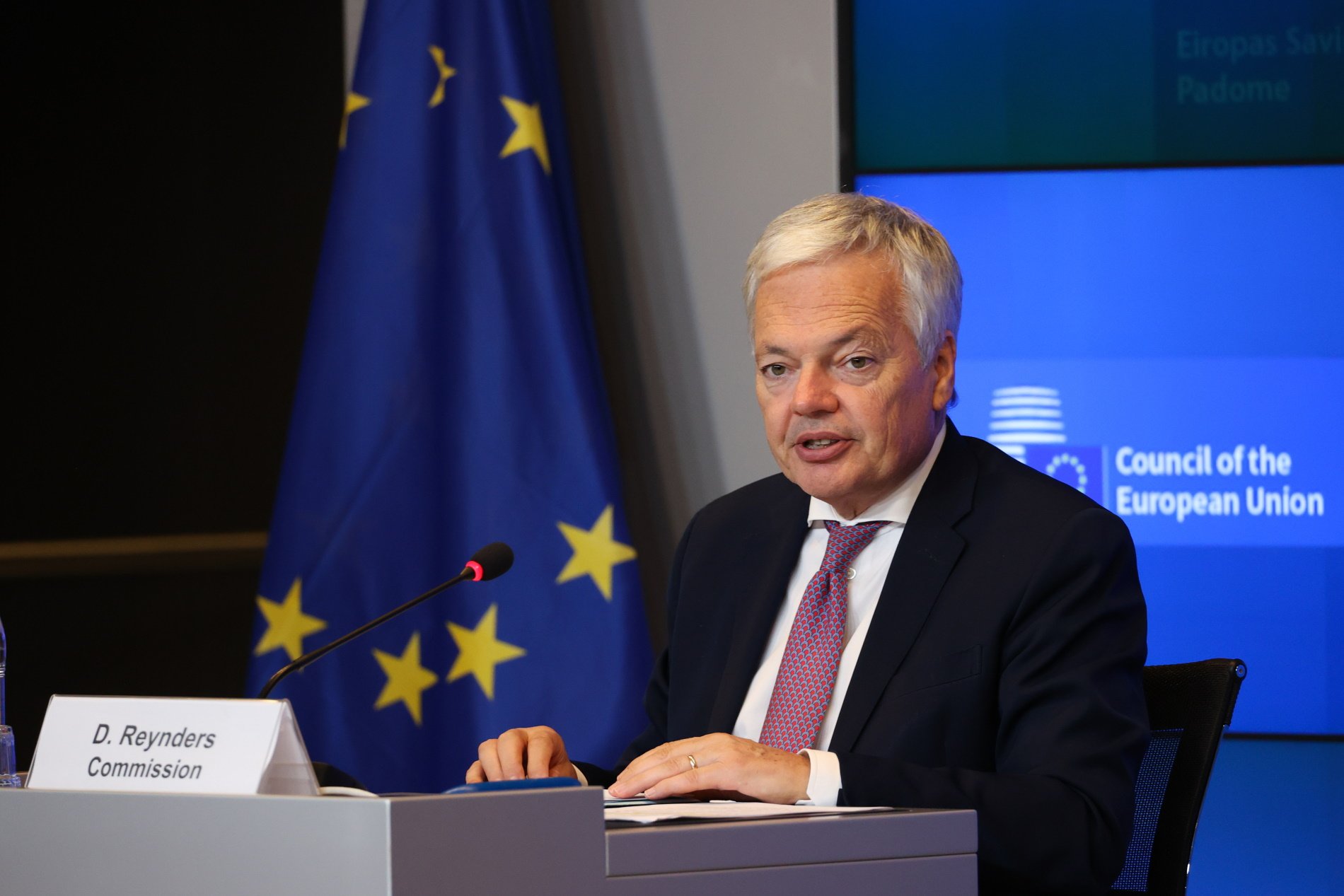The offensive being conducted in Spain by the People's Party (PP) against the proposal for an amnesty for independence process prosecutions is not stopping. First, by the party's initiative to present parliamentary motions in the chambers of Spain's autonomous communities so that Socialist (PSOE) deputies have to take a position regarding the measure which the pro-independence parties have demanded in return for giving Pedro Sánchez the votes to form a new Spanish government. Then, calling or taking part in demonstrations across the Spanish state, for example the one this weekend in Barcelona, which only managed to attract around 50,000 people according to the Guàrdia Urbana. And now the main party of the Spanish right has also taken the issue to Brussels, trying to get the European Commission to speak publicly against the amnesty, although without success. Specifically, the People's Party MEP, Javier Zarzalejos, raised a question to justice commissioner Didier Reynders during his participation in a parliamentary committee, with reference to the amnesty. In it, the PP politician hypothesised that if Pedro Sánchez reaches an agreement with the pro-independence parties over this measure, the law would mean that court rulings and ongoing proceedings for crimes that he labelled as "very serious", such as misuse of public funds or disobedience of a court order, would be "deprived of content". Despite this attempt to extract a response, Reynders answered that the European Commission would be "attentive to the way in which the subject evolves", referring to an amnesty law that is still being negotiated, "especially when there are links with problems of misuse of funds or irregular appropriation of public finance".
The Commission won't give an opinion until it has the law
Thus, the PP failed in the attempt to make Reynders position himself openly against a possible amnesty, since, as he has clarified, he cannot make a "precise assessment of the amnesty law because there is no formal document on the table that I can examine". Since the Spanish general election on July 23rd, the community executive has refused to comment on this possibility, since it does not know the details and because it is an affair within the domestic sphere. The two main pro-independence parties, Catalan Republican Left (ERC) and Together for Catalonia (Junts), with seven deputies in Congress each, are asking the PSOE for an amnesty law as a pre-condition for investiture of a new prime minister, in addition to progress on the question of Catalonia's self-determination and, in the case of ERC, improvements in what they describe as the "well-being" of the citizens of Catalonia, in reference to the transfer of the Rodalies rail service to Catalan control, and an ending of Catalonia's fiscal deficit. However, although ERC affirms that the amnesty has already been agreed upon - since it was part of their agreement for the Congressional Bureau - both the PSOE and its likely left-wing partner Sumar warn that as yet no agreement has been reached. In fact, this Tuesday, Yolanda Díaz's party will present its proposed amnesty law in Barcelona, a document very similar to the one the pro-independence parties presented to the Congress of Deputies in 2021.
Sánchez breaks the ice in front of Von der Leyen
Until last week, only Sumar gave signs of truly welcoming this possibility, while the PSOE was much more cautious and limited itself to saying that any pact reached with the pro-independence parties would be within the framework of the Constitution. But the discourse of acting prime minister Sánchez entered a new phase last Friday, when for the first time he uttered the word "amnesty", which until then had not left his lips. He did it, precisely, in front of the president of the European Commission, Ursula von der Leyen, after the informal meeting of the European Council in Granada, in the framework of the Spanish presidency of the Council of the European Union. And he did it to make it clear that the proposal that Jaume Asens will present tomorrow in Barcelona is only from Sumar and not from the acting Spanish executive - which is, of course, a coalition consisting of the PSOE and its left-wing partners.

